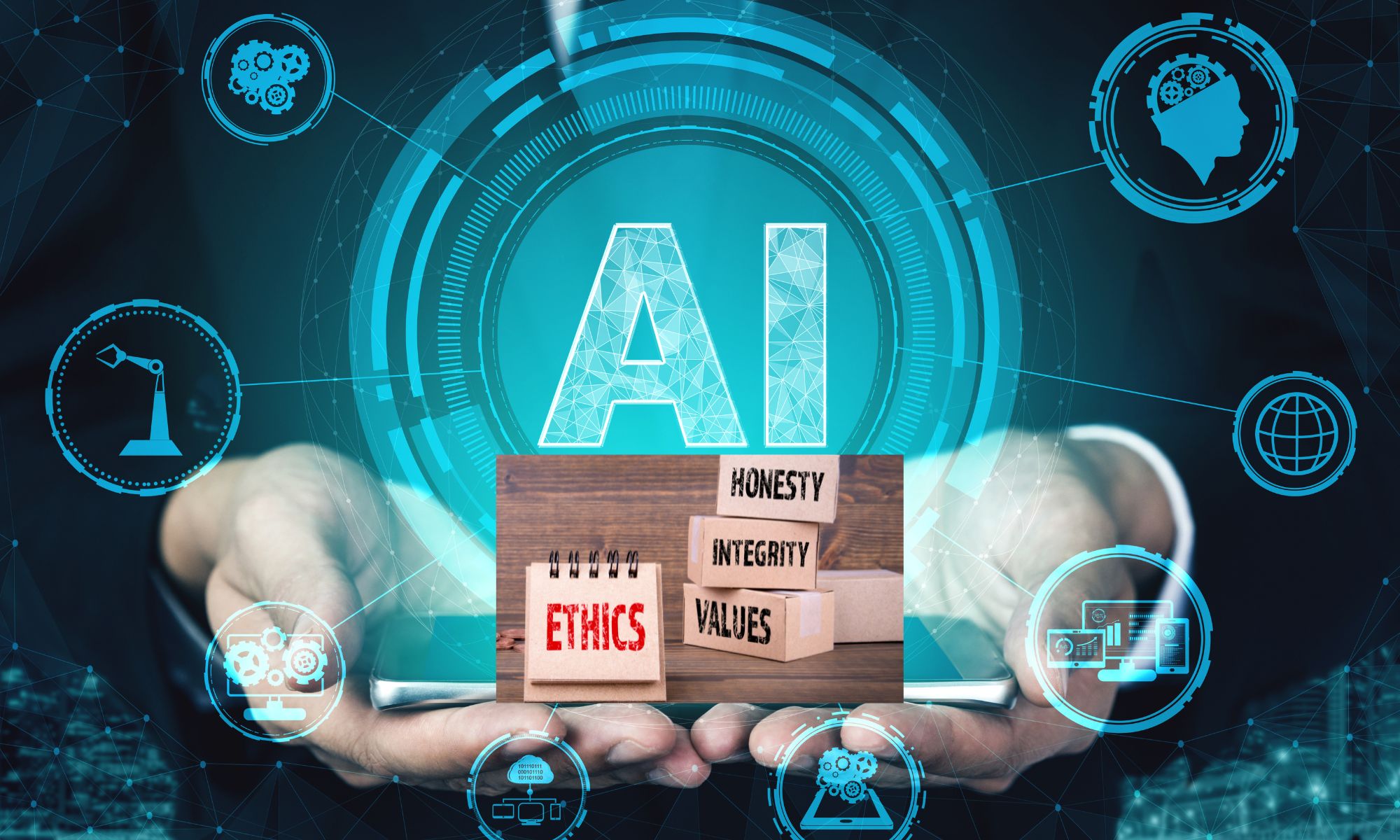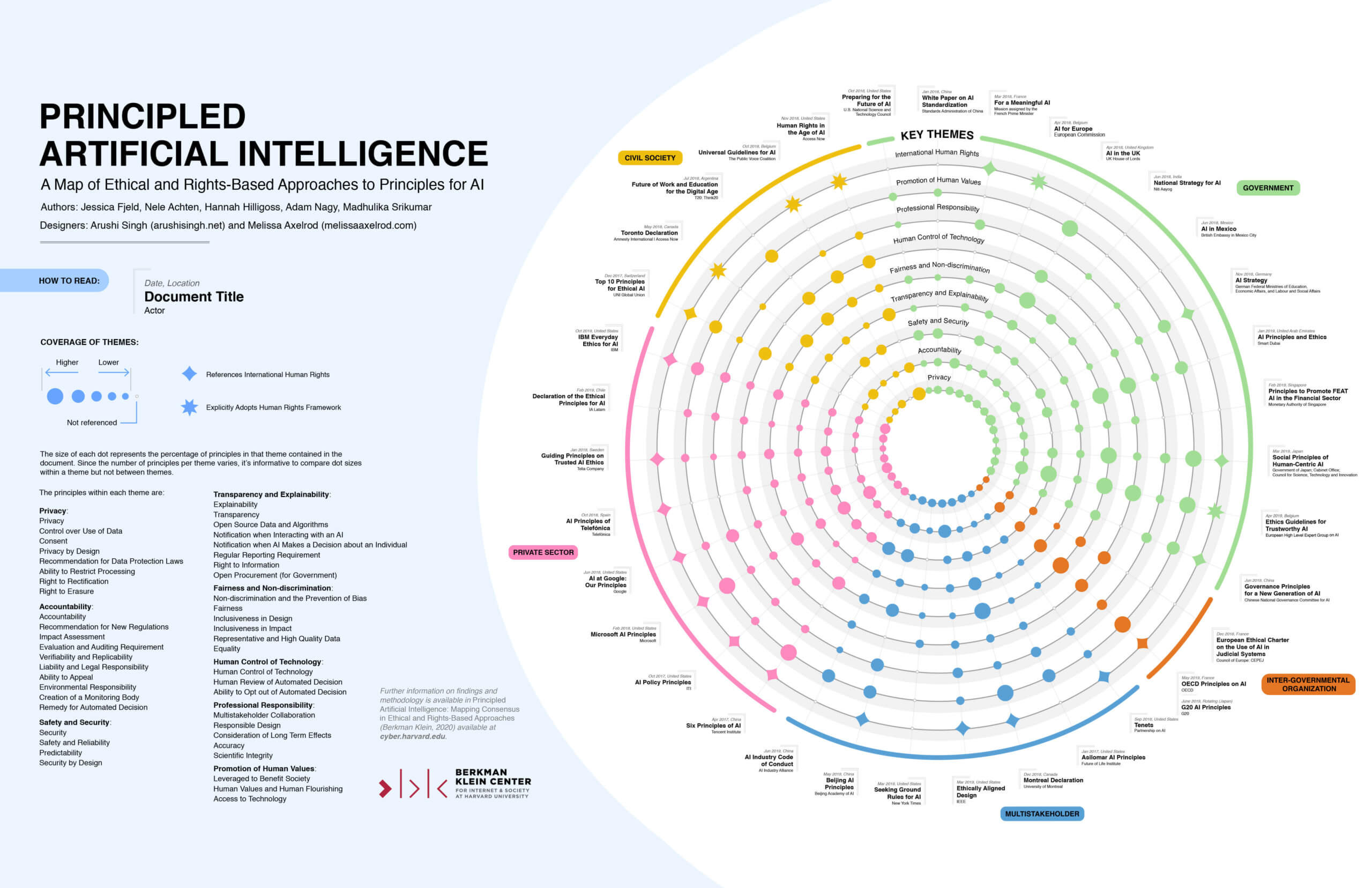The Ethics of AI: Navigating the Moral Landscape

As artificial intelligence (AI) continues to advance at an unprecedented pace, it raises complex ethical questions that challenge our traditional notions of morality and responsibility. From driverless cars to facial recognition systems, AI algorithms are increasingly making decisions that impact our lives in profound ways. Unraveling the ethical implications of AI and developing a framework to guide its responsible development and use are paramount.

One of the most significant ethical issues surrounding AI is the potential for bias and discrimination. AI systems, trained on large datasets, can inherit and amplify existing societal biases, leading to unfair or discriminatory outcomes. For instance, AI-powered hiring tools have been found to favor certain demographic groups over others, perpetuating existing inequalities. To mitigate this risk, it is crucial to carefully examine the data used to train AI algorithms and implement measures to ensure fairness and inclusivity.

Another ethical concern pertains to the autonomy of AI systems and the question of accountability. As AI systems become more sophisticated and capable of making complex decisions, determining who is responsible for the outcomes becomes increasingly challenging. In the context of autonomous vehicles, who should be held liable in the event of an accident: the driver, the manufacturer, or the AI system itself? Clearly defined guidelines and regulations are necessary to establish accountability and ensure transparency in AI decision-making.
Privacy is yet another ethical consideration associated with AI. AI algorithms often rely on vast amounts of personal data to learn and make predictions. This data, collected from various sources such as social media, online transactions, and IoT devices, raises concerns about privacy侵犯. Striking a balance between the legitimate use of data for AI development and safeguarding individual privacy is a delicate task that requires careful attention.
Furthermore, the rapid advancement of AI also challenges our understanding of human identity, agency, and responsibility. As AI systems become more intelligent and capable, they might reach a level of consciousness or self-awareness that blurs the line between humans and machines. This raises profound philosophical questions about the nature of consciousness, the meaning of life, and the essence of human existence.
Navigating the ethical landscape of AI requires a multidisciplinary approach, involving philosophers, ethicists, policymakers, computer scientists, and industry leaders. To address the ethical challenges posed by AI, several strategies can be implemented:
-
Transparency and Accountability: Ensuring transparency in AI decision-making processes and establishing clear lines of accountability can help mitigate potential biases and instill trust in AI systems.
-
Value Alignment: Aligning AI systems with human values and societal norms is crucial to avoid unintended consequences and ensure that AI technologies align with our collective goals and aspirations.
-
Ethical Guidelines: Developing comprehensive ethical guidelines and regulations for the development and use of AI can provide a framework for responsible AI practices and help prevent harmful applications.
-
Public Engagement: Fostering public dialogue and education about the ethical implications of AI can raise awareness, promote understanding, and encourage responsible decision-making.
-
International Collaboration: Addressing the ethical challenges of AI requires global cooperation and collaboration among nations, organizations, and experts to develop shared ethical principles and standards.
In conclusion, the ethical implications of AI are vast and far-reaching, encompassing issues of bias, discrimination, autonomy, responsibility, privacy, and the very nature of human existence. Navigating this complex moral landscape requires a concerted effort from various stakeholders to develop a robust ethical framework that guides the responsible development and use of AI. Only through thoughtful consideration, collaboration, and a commitment to shared values can we harness the full potential of AI while mitigating potential risks and ensuring a future where humans and machines coexist in a harmonious and ethical manner.# The Ethics Of AI: Navigating The Moral Landscape
Executive Summary
The rapid advancement of artificial intelligence (AI) has sparked profound ethical concerns and debates. As we venture deeper into the realm of autonomous machines and intelligent algorithms, it is imperative to address the moral dimensions of AI and establish ethical guidelines to ensure responsible and beneficial development and deployment. This article delves into the ethical considerations surrounding AI, exploring key subtopics such as privacy, fairness, accountability, transparency, and safety, providing a comprehensive understanding of the moral challenges posed by AI.
Introduction
The integration of AI into various aspects of human life has propelled the need for ethical scrutiny. As AI systems become increasingly sophisticated, they raise fundamental questions about the balance between technological progress and human values. This article aims to provide a comprehensive overview of the ethical considerations associated with AI, delving into the complexities of privacy, fairness, accountability, transparency, and safety.
Privacy
AI’s impact on privacy raises concerns about data collection, usage, and storage. Key considerations include:
-
Informed Consent: Ensuring individuals knowingly and voluntarily consent to the collection and use of their data for AI development and deployment.
-
Data Security: Implementing robust measures to protect personal data from unauthorized access, use, or disclosure.
-
Data Minimization: Limiting the collection and retention of personal data to only what is necessary for the specific AI application.
-
Purpose Limitation: Ensuring data is used only for the specific purpose for which it was collected and not for any other unrelated purposes.
-
Right to Access and Control: Providing individuals with the right to access, review, and correct their data, as well as the right to request its deletion.
Fairness
AI systems should be designed to treat all individuals fairly, without bias or discrimination. Key considerations include:
-
Algorithmic Bias: Addressing the potential for bias in AI algorithms, particularly those trained on historical data that may perpetuate existing societal biases.
-
Equal Opportunity: Ensuring AI algorithms promote equal opportunities for all individuals, regardless of race, gender, ethnicity, or other protected characteristics.
-
Transparency and Explainability: Providing clear explanations of how AI algorithms make decisions, enabling stakeholders to understand and address any potential bias.
-
Accountability: Holding AI developers and users accountable for the decisions and outcomes generated by AI systems.
-
Human Oversight: Maintaining human oversight and control over AI systems, ensuring they are used in a responsible and ethical manner.
Accountability
Establishing clear lines of accountability is crucial for ensuring responsible AI development and deployment. Key considerations include:
-
Responsibility for Actions: Clearly defining who is responsible for the actions and outcomes of AI systems, particularly in cases of harm or unintended consequences.
-
Liability and Legal Obligations: Determining liability frameworks for AI-related incidents, clarifying who is legally responsible for damages caused by AI systems.
-
Transparency and Auditability: Ensuring AI systems are transparent and auditable, enabling stakeholders to understand how they operate and make decisions.
-
Oversight and Regulation: Establishing regulatory bodies and mechanisms to oversee the development and deployment of AI, ensuring compliance with ethical standards.
-
Certification and Standards: Developing certification and standardization frameworks to ensure AI systems meet ethical and safety requirements.
Transparency
Transparency is essential for building trust and understanding in AI systems. Key considerations include:
-
Explainability and Interpretability: Making AI algorithms and decision-making processes understandable and interpretable by humans.
-
Access to Information: Providing stakeholders with access to information about AI systems, including their design, training data, and decision-making processes.
-
Openness and Collaboration: Promoting open collaboration and sharing of AI research, development, and deployment practices to foster transparency and accountability.
-
Public Engagement: Engaging the public in discussions about the ethical implications of AI, encouraging informed decision-making and shaping public policy.
-
Education and Awareness: Educating the public and policymakers about AI technologies, their capabilities, and potential societal impacts.
Safety
AI systems should be designed and deployed to be safe and reliable, minimizing risks to individuals and society. Key considerations include:
-
Risk Assessment and Management: Conducting thorough risk assessments to identify and mitigate potential risks associated with AI systems before deployment.
-
Reliability and Robustness: Ensuring AI systems are reliable and robust, able to operate safely even in unexpected or adverse conditions.
-
Human Control and Oversight: Maintaining human control over AI systems, particularly in high-stakes applications, to ensure human intervention when necessary.
-
Fail-Safe Mechanisms: Implementing fail-safe mechanisms to prevent catastrophic outcomes in case of system failure or malfunction.
-
Continuous Monitoring and Evaluation: Continuously monitoring and evaluating AI systems in operation to detect and address any emerging risks or issues.
Conclusion
The ethical considerations surrounding AI are complex and multifaceted, encompassing a wide range of issues that require careful attention and thoughtful deliberation. As AI technology continues to evolve, it is imperative to prioritize ethical principles, establish robust governance frameworks, and foster a culture of responsible innovation. By navigating the moral landscape of AI, we can strive to harness its transformative potential while safeguarding human values and ensuring the well-being of individuals and society.
Keyword Phrase Tags
- AI Ethics
- Privacy in AI
- Fairness in AI
- Accountability in AI
- Transparency in AI
- Safety in AI

This article delves into the profound ethical considerations surrounding artificial intelligence, navigating the complex moral landscape with thought-provoking insights and critical analysis. A must-read for anyone interested in the burgeoning field of AI.
While the article raises important questions about the ethics of AI, it fails to offer clear and actionable solutions. It’s nothing more than a philosophical musing that leaves readers with more questions than answers.
An informative and well-researched article that sheds light on the ethical implications of AI. Particularly insightful was the discussion on the potential impacts on human labor and the need for responsible development.
The author’s arguments are flawed and their conclusions are questionable. They seem to have a biased view of AI and fail to consider the potential benefits it may bring.
Of course, the ethics of AI are a concern, but let’s not forget the ethical implications of all the other technological advancements that we’ve blindly embraced. It’s the height of irony.
Oh, let’s worry about the ethics of AI when we can barely handle the ethics of social media. This article is just another example of academics overthinking a non-issue.
The idea that AI could pose ethical challenges is like worrying about the ethics of a hammer. It’s a tool, and the ethics lie in how it’s used, not in the tool itself.
How can we develop ethical guidelines for AI when we can’t even agree on ethical guidelines for humans? This is a much more complex issue than the article suggests.
The ethical implications of AI are fascinating and deserve serious consideration. This article provides a valuable starting point for further exploration of this complex topic.
The potential for misuse of AI is terrifying. It’s like playing with fire – we need to proceed with extreme caution to evitar unintended consequences.
The article’s discussion of the potential impacts of AI on employment is insightful and thought-provoking. However, it could benefit from a deeper analysis of the potential solutions to mitigate these impacts.
While the author raises valid concerns, they fail to acknowledge the potential benefits of AI in addressing global challenges such as climate change and poverty.
Trust me, AI is not the monster it’s made out to be. It’s a tool that can be used for immense good. The possibilities are endless!
Mark my words, AI will be our downfall. It’s only a matter of time before it becomes self-aware and turns on its creators.
The article raises important questions, but it’s essential to remember that AI is still in its infancy. As it continues to develop, so too should our ethical considerations.